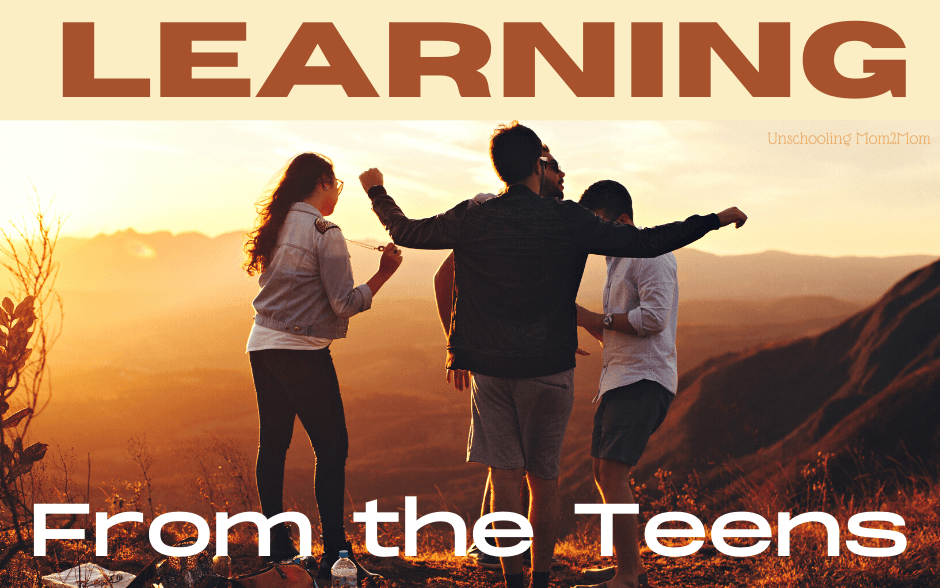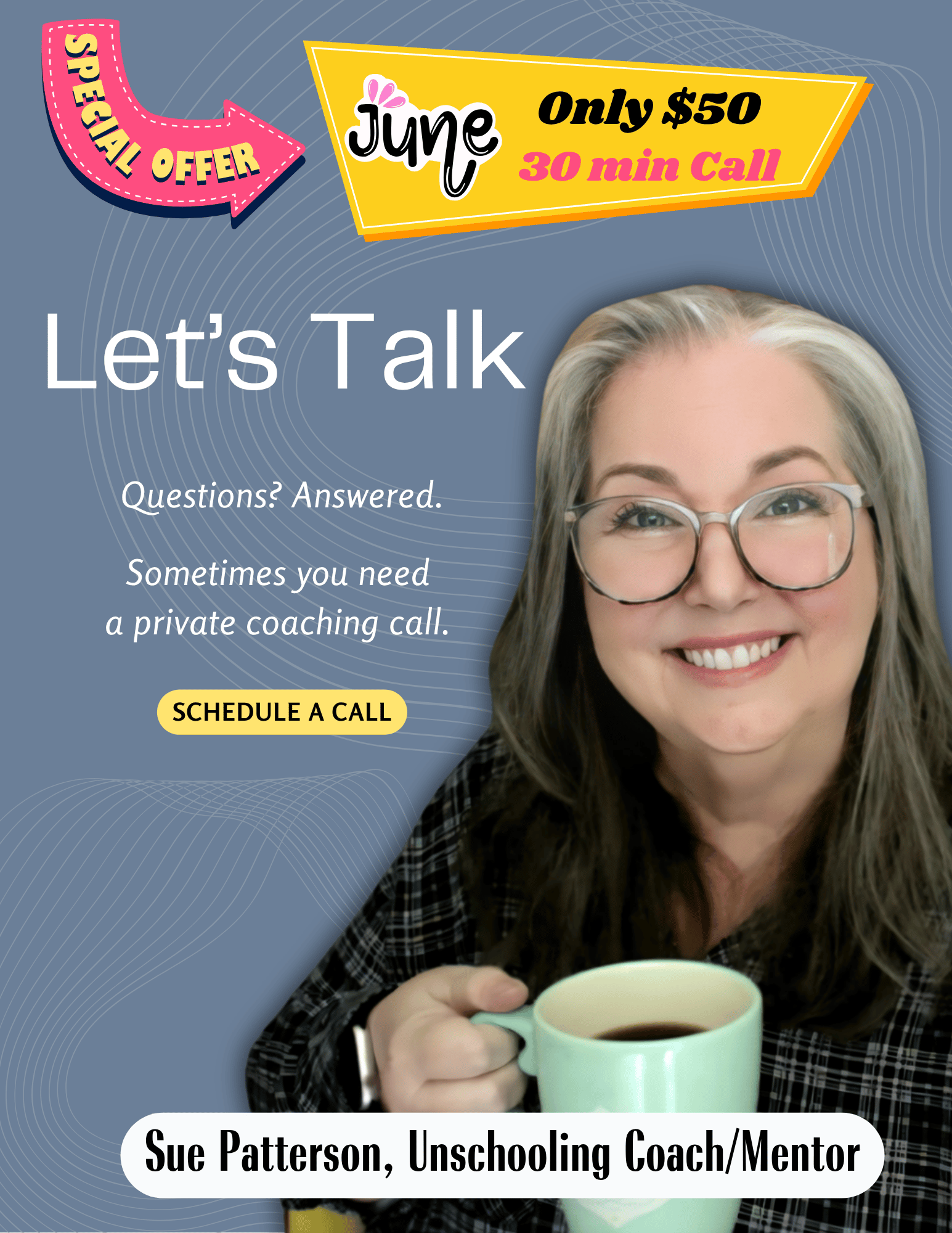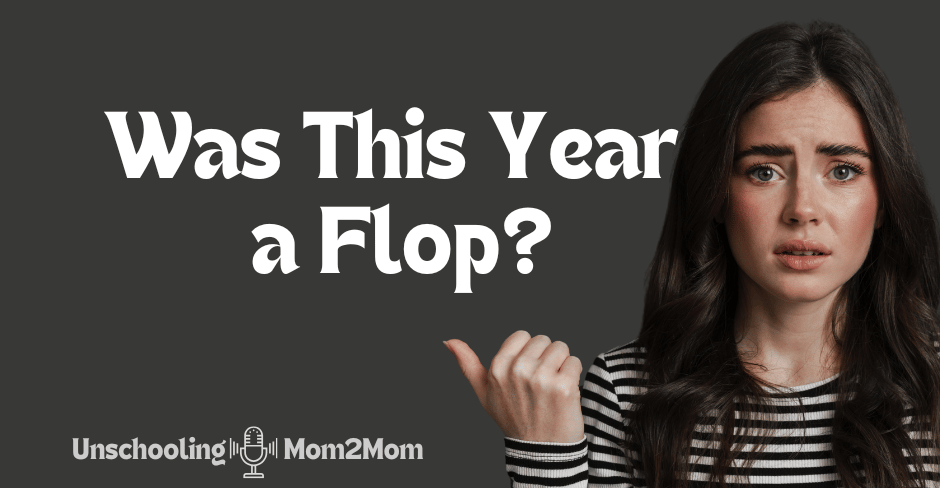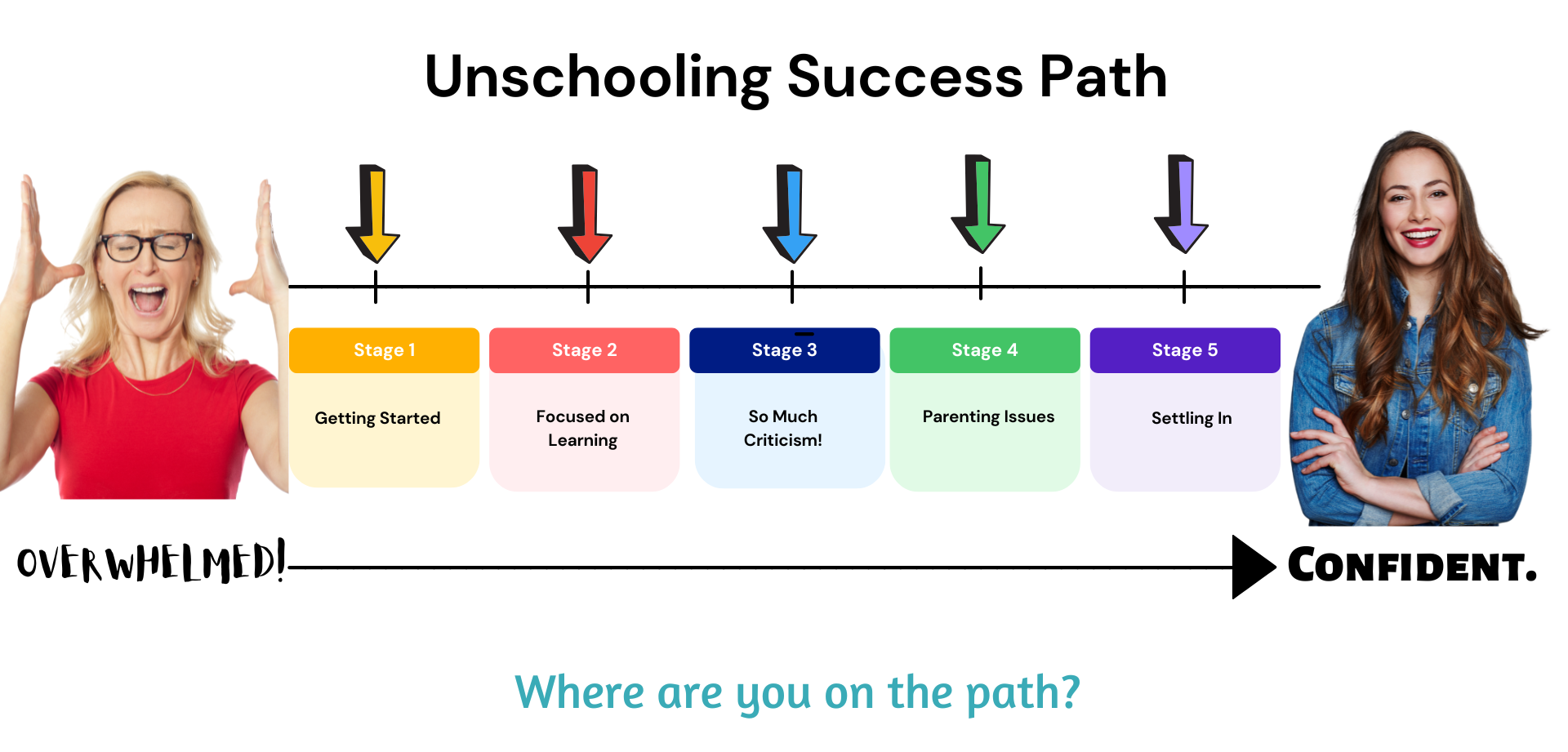Learning From the Teens
Sometimes it helps to hear from those a little further down the path. When unschooled teens and young adults were surveyed in the book, HOMESCHOOLED TEENS: 75 Young People Speak about their Lives without School (over 60% of the survey respondents were unschoolers!), they shared candidly about the teenage years of their live.. Instead of seeing their family’s educational choice as putting them at any disadvantage, they found the opposite to be true!
Their list of advantages because of unschooling fell into six categories:
- They have a happier approach to learning.
- They’ve been exposed to real world opportunities.
- They have the freedom to make choices.
- They’ve been able to avoid unnecessary stress.
- Their socialization opportunities are better.
- They have better influences.
Let's look at what they meant by this...
APPROACH TO LEARNING
Parents of unschoolers have the opportunity to protect their teen’s natural love of learning. We notice that very young children are like sponges when it comes to new experiences. Their curiosity propels them into learning new skills and ideas. One reason we don’t see this attitude toward learning continue as they get older, might be because society gets in the way. Schools decide what and when they’re going to learn. If parents continue this path at home, the teen’s internal motivation to explore and discover is often stifled. Forcing the school’s plan for learning on children, year after year, teaches them that their choices must be shelved so that the system’s choices for them remains the priority.
Unschooling families have the opportunity to change all of that. They can remove the obstacles that interfere with that drive to learn. They can tailor their teen’s education to his or her interests, strengths and weaknesses – a truly personalized learning situation. By doing so, they can maintain that enthusiasm for learning that was so obvious in their younger years.
REAL WORLD OPPORTUNITIES
Homeschoolers have an enormous advantage when it comes to living in the real world. They aren’t confined to 180 days of classroom attendance, or limited to only reading about fascinating places or events. Unschoolers move freely in the world, exploring their communities and interacting with a wide variety of people.
Misconceptions about unschoolers being sheltered and lacking exposure to “real life” are unfounded. Unschooled teens make friends in neighborhoods, clubs, and community activities, but they’re also working, going to community colleges, interacting with a wide variety of people, and traveling the globe.
FREEDOM TO MAKE CHOICES
When families send their teens to school, I don’t think they consider how much freedom they’re asking their child to give up. Most parents went to school themselves, so they give little thought to sending their children along a similar path. Studies show that giving children and teens more freedom allows them time and opportunity to gain practice, improve confidence, become more self-reliant. Unschoolers have the freedom to follow their passions, dipping their toes into new activities, pursuing interests on a deeper level than would have been available at school. Sitting in a classroom, all day every day, with each hour pre-planned for them, robs them of opportunities to gain these skills.
Sometimes families fear giving teens freedom because they worry that chaos will result. But when parents are well-connected with their teen, they are in a much better position to know how much freedom that teen can handle.
AVOIDING UNNECESSARY STRESS
The news is full of heartbreaking stories of teenagers struggling with stress. Bullying is rampant – statistics show that 75-80 percent of middle and high school-aged kids have experienced some form of bullying! The pressure to drink, smoke, do drugs, diet, have sex, dress a certain way, and conform, bombards children in schools at younger and younger ages. Whether teens are worried about fitting in or competing with their peers, clearly a problem exists. Unschooled teens report that any stressful situations they’ve experienced have been minimized if not completely avoided. It’s not that unschoolers live a stress-free life – no one is so lucky to have that! But so many stressful situations only exist when a person attends school.
BETTER SOCIALIZATION
Unfortunately, “social reasons” are often touted as a reason a parent avoids homeschooling their teen. Just because you are in close proximity to hundreds of other teens on a daily basis doesn’t mean you are going to get much experience with good socialization. Those of us who went to middle schools and high schools need only to pause for a moment to remember situations that didn’t go well at all. When children are basically trapped eight hours per day, five days per week, that environment can easily become a breeding ground for some very negative social behaviors. Bullying, avoidance, creating artificial “pecking orders” become common schooled kid behaviors. It’s not surprising since these children and teens have to find some way to adapt to this situation most cannot escape.
Unfortunately, “social reasons” are often touted as a reason a parent avoids homeschooling their teen. Just because you are in close proximity to hundreds of other teens on a daily basis doesn’t mean you are going to get much experience with good socialization. Those of us who went to middle schools and high schools need only to pause for a moment to remember situations that didn’t go well at all. When children are basically trapped eight hours per day, five days per week, that environment can easily become a breeding ground for some very negative social behaviors. Bullying, avoidance, creating artificial “pecking orders” become common schooled kid behaviors. It’s not surprising since these children and teens have to find some way to adapt to this situation most cannot escape.
When I was in school, we were always told, “You’re not here to socialize!” And yet, that’s often a big obstacle for parents deciding about unschooling through the teen years. Realistically though, in high schools, the teens have to get from one classroom to another in approximately three minutes – not a lot of time for any socialization there!
Parents of unschoolers find situations for their adolescents to socialize with others in much more positive ways. Sometimes it’s through support group functions, conferences, or simply finding other teens sharing similar interests.
Unschoolers are not limited to only interacting with their own age group. They can learn from and even befriend people who are younger or older – all based on similar interests. This kind of interaction with other members of society is a lot more similar to how adults interact with each other once they’re out of school! Keeping everyone grouped together with their own age group solely because they were born the same year is much more artificial and does nothing to help adolescents merge into “the real world.”
Another socialization advantage is that parents of unschooled teens are often more involved with what’s happening in their teens’ life. They’re not so out of the loop that they can’t offer support and guidance for how to gracefully learn to get along with others in society. By the time an exhausted teen gets home from a day of drama in high school, they seldom want to share it with the people who might actually be able to help them. Unschooling changes this dynamic on many levels.
BETTER INFLUENCES
Relationships can be strengthened in an unschooling home. And when relationships are good, parents are in a better position to offer guidance along the way. They're not seen as an enemy or out of touch. Parents have a chance to be much more involved in their teens' lives, more likely to notice when their teens is having a rough time.
The relationship that the parent takes the time to build with their teen will set them up to be in a lot better position to offer problem-solving or simply have some influence when their teen faces some of the tougher choices that await them as they grow up.
Looking for More Reassurance?
Homeschooled Teens offers first-hand responses from 75 young people who responded to 25 of the most frequently asked questions unschooled (and homeschooled) teens hear. Sue Patterson guides you through these questions and provides the framework you need to get your own questions answered.
The link also offers endorsements and book reviews you won't want to miss!











